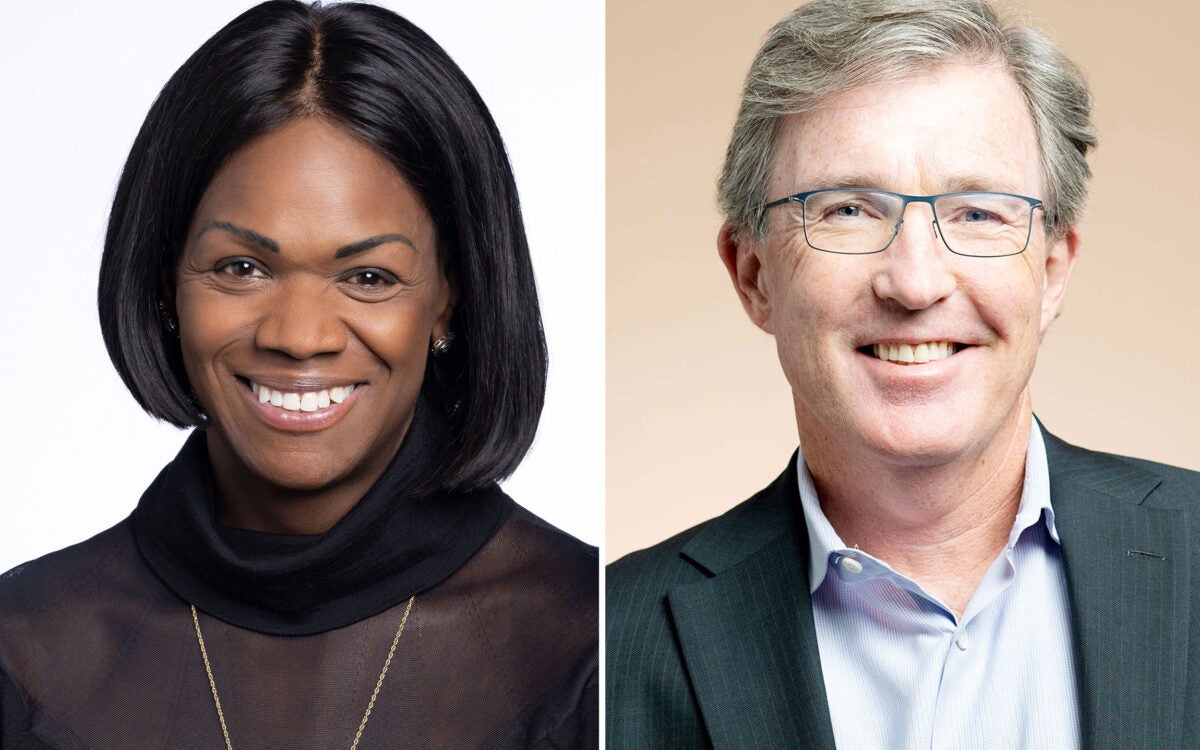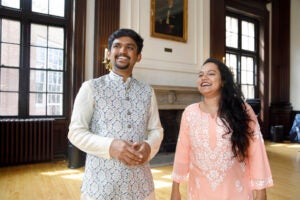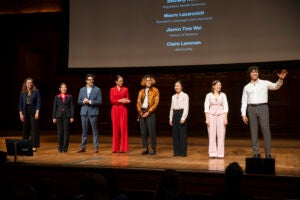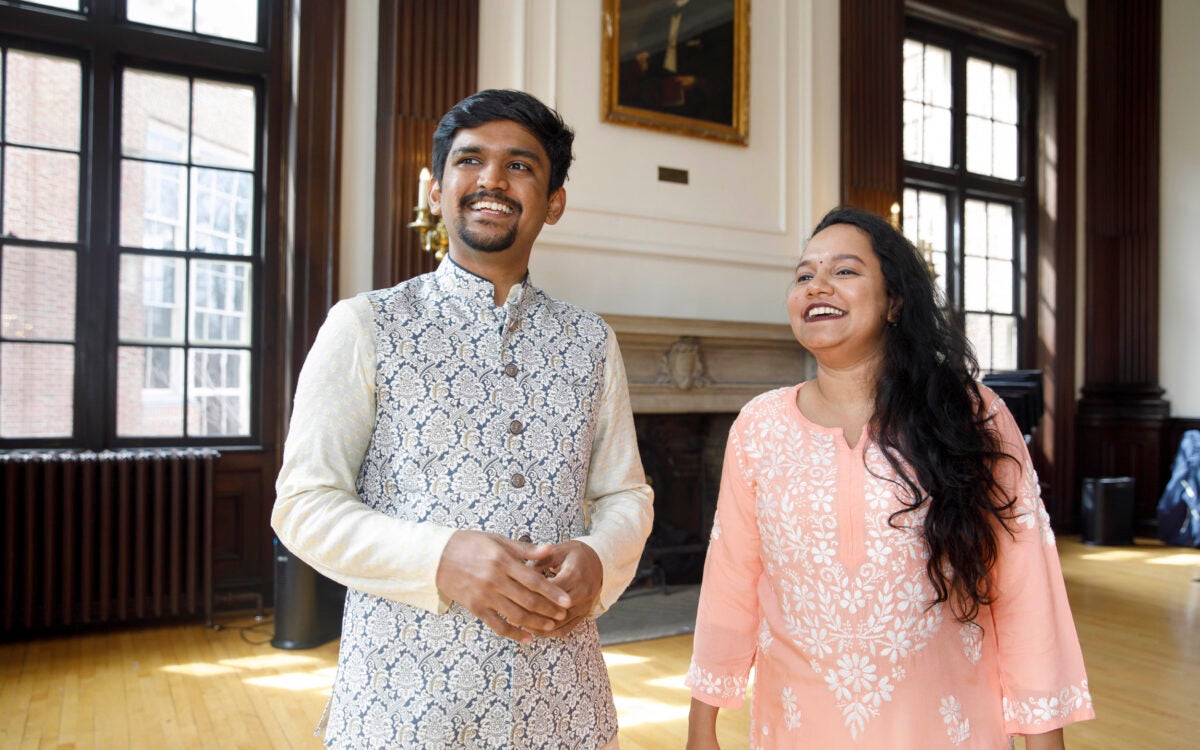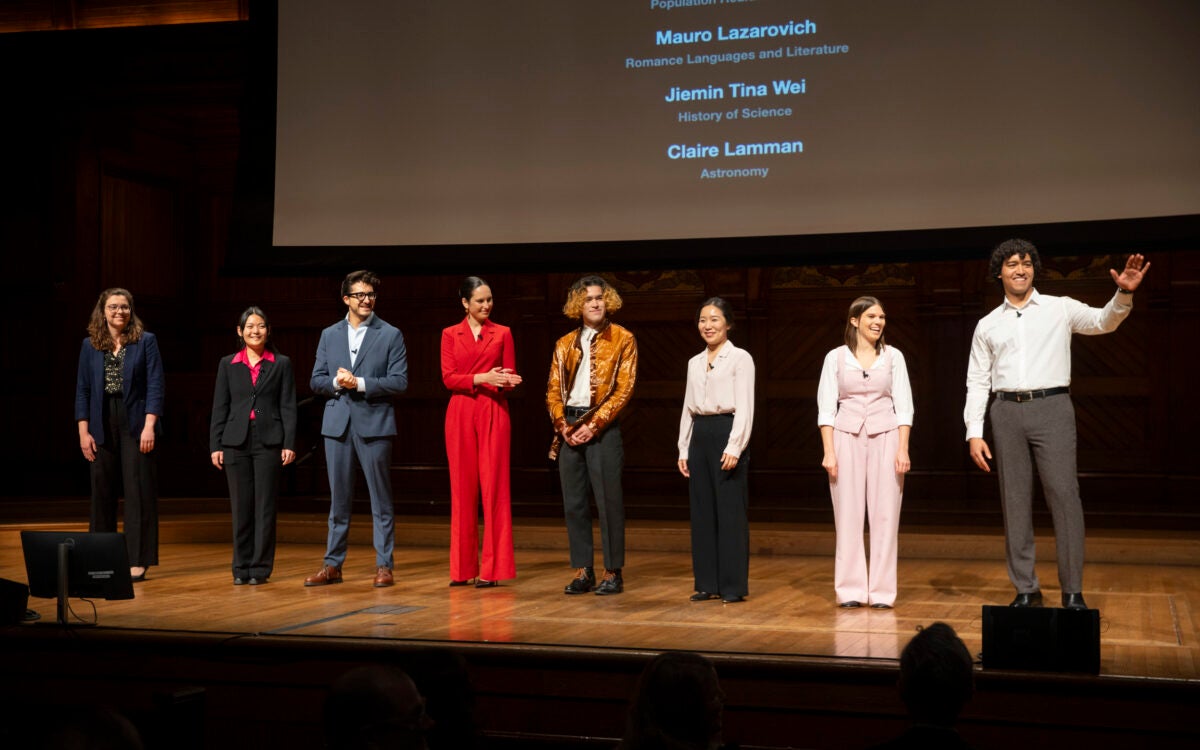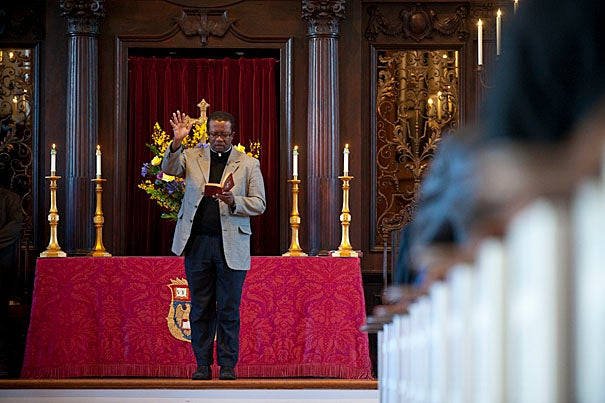
The Rev. Gabriel Michel leads the benediction to close a memorial service for the victims of the Haiti earthquake at the Memorial Church.
Kristyn Ulanday/Harvard Staff Photographer
A service for Haiti’s sadness
Harvard mourns those killed, hurt in quake
More than 200 people, including dozens of University employees transported by shuttle bus from the Harvard Business School and the Longwood Medical Area, attended a somber but hopeful service at the Memorial Church in Harvard Yard today (Feb. 11) for victims of the earthquake in Haiti, and their families.
The Rev. Dorothy Austin led the service, which took place just one day short of a month after the tragedy. After the congregation sang “Abide With Me” and listened to Psalm 23 in both English and French, Harvard President Drew Faust spoke briefly, saying the service was meant to affirm solidarity and support. “We recognize that a loss to any of us is a loss to all of us,” she said, “and struggle together to understand the meaning of such terrible tragedy. In the face of the unbearable reality of such loss, we must turn to one another for support, for help, for comfort, and for compassion.”
The Rev. Gabriel Michel, parochial vicar at St. Angela Merici Parish in Mattapan and a chaplain at Massachusetts General Hospital, talked about Haiti’s dead, but also the injured who did not yet have access to medical care, those who were in refugee camps, those who are unaccounted for, those who have had to mourn without giving their loved ones proper burials, and those suffering from fear, anxiety, anger, and humiliation as they try to rebuild their lives. Michel said he learned much from a recent trip to the country.
“The bravery, resilience, and faith of the Haitian people are unbelievable,” he said. He quoted the Rev. Juan Huertas of Louisiana, who said the greatest tragedy in an earthquake or other natural disaster “is not the material damages it causes, but the destruction of what is human.” He expressed hope that help would continue to come, not only to rebuild roads and infrastructure, but to rebuild lives.
During the memorial, local Haitian musician Pierre Gardy Fontaine sang “It Is Well With My Soul” in a compelling baritone. Writer Patrick Sylvain, Ed.M. ’98, also a Massachusetts resident with Haitian roots, read from his poem “Catacomb.” The congregation observed two minutes of silence while the church’s bells chimed a dozen times.
Jean Claude Desanges, an operating engineer in Harvard’s Facilities Maintenance Department and a leader in the Haitian work force, spoke of his sense of belonging at the University and the solidarity here that has given him hope. “Thirty-five seconds destroyed everything,” he said, “but I do believe good arises from every tragedy.” He mentioned the country’s difficulties before the disaster, adding, “The Haiti I dream of is so much more. I know it will take time to reach those goals. But because of you and people like you, I know it has a chance.”
The final speaker was Harry Dumay, associate dean for finance and chief financial officer at Harvard’s School of Engineering and Applied Sciences. He sounded the only political note of the day, mentioning that he and other Haitians were “uplifted by the unprecedented show of support” but also “humbled if not shamed by the airing of our dirty laundry.” He pointed out that while news reports often mention the poverty of the country, they rarely note its “considerable achievement” as the world’s first black republic or how its poverty had its roots in the international community’s fear of “a thriving nation of free, black people.” (The country was in debt after France granted its independence in 1804 but demanded compensation for the revenue it would lose in the former slave colony.)
Still, Dumay grew upbeat in remembering the “spirit of people who burst into song in the midst of complete desolation.” He concluded by saying the disaster was a chance to rebuild Haiti as a modern nation, adding that, going forward, he would like the international community to see the country not as a charity case but as a financial opportunity. With proper investment, he said, people there could step up the ladder of economic success.
“Where there is life,” he concluded, “there is hope.”
The University has established a relief fund for Harvard faculty and staff directly affected by the earthquake in Haiti. Donations can be made online, in person, or by mail through the Harvard Credit Union.
